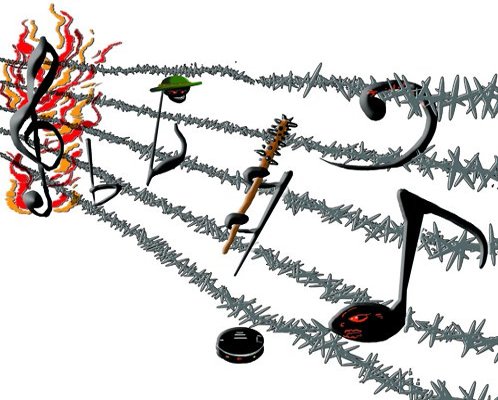
Longing for the day ...
Why is my music so small when music is so big to me?
|
Stay in touch!
Search with
Archives
November 2019
July 2019 June 2019 September 2018 August 2018 July 2018 May 2018 January 2018 December 2017 November 2017 October 2017 September 2017
Recent Entries
12 Good Bars and True - Rewrite and feedback
12 Good Bars and True - NSAI Feedback Red Hot - NSAI feedback Home Free - Be Free re-write - NSAI feedback Somebody Else's Skin - NSAI feedback Simplicity - NSAI feedback When It's Over - NSAI feedback She Don't Want Your Love - NSAI feedback Angels - NSAI feedback Baby I Need Your Soul - NSAI feedback |
July 16, 2010The problem of recorded music.At the end of the 20th century, recorded music sales were booming. In 1999, driven by massive global smash hits like the Backstreet Boys' Millennium and Ricky Martin, total sales volumes of music recordings in the USA peaked at 1160.6 million units, amounting to US$14.58 billion. But since 2000 US sales have declined both in volumes and in dollar value. Digital sales have made up some of the lost revenue but not enough to compensate overall. That this pattern is repeated in other major music markets the world over has been well documented and discussed. There are some signs that overall recorded music sales may once again be on the increase because digital sales now exceed hardcopy sales. Other evidence suggests the digital market may be maturing. The decline in CD sales has been variously blamed on piracy, file-swapping, corporate greed, the prevailing economy, inadequacies in the methods of collecting 21st century sales data, and market dilution caused by alternative forms of entertainment. However, putting the politics aside, the causes have proved complex and difficult to map. What is less well known is that these dramatic recent figures hide a much longer decline. According to one study, US per-person sales of recorded music peaked in 1978 (coinciding with the rise of home computers and video recorders) and US recorded music sales as a fraction of GDP peaked in 1921 (coinciding with the "broadcasting boom" - http://earlyradiohistory.us/ and closely followed by movies with synchronized sound in the late 1920s). The most recent figures from the UK indicate that the per-person trend may be continuing downward in the major markets. This indicates that the decline in the value of recorded music pre-dates any of the commonly espoused explanations and is unrelated to them. The difficulty still experienced by 21st century musicians trying to earn a living from their recorded music has led to the argument that by making digital files and/or CDs available at no cost to the consumer, musicians are "devaluing" music. According to this argument, giving CDs and MP3s away to potential fans gives the impression that the music is worthless. However, this argument is contradicted by other aspects of the music industry which, overall, is booming. Instrument and equipment sales are up. Live performance revenues are up. More music is being made and consumed than ever before. It seems silly to argue that music is being devalued by a process that leads directly to greater production, productivity and consumption. So, how can music sales decline in light of 21st century technologies if more of it is being appreciated than ever before? How is "music" worth less when only one sector of the music industry, recorded music, is suffering from a downturn? Is a sale price the only measure of music's value to a musician's business? What follows in this e-book is an exploration of the nature of musical value. This shows how those parts of the industry that relied on recording music for their income built their empires on a temporary phenomenon but assumed that its foundations were permanent. Understanding this fundamental misconception leads to a realisation of why other aspects of the industry are inversely affected by the decline in recorded music's fortunes and points the way forward to a 21st century music business model. Part 1 shows how music has historically been valued in Western cultures and how this has led to a misconception of music's place in the economy. Part 2 provides a better way to understand the value of music in the marketplace. Part 3 shows how music makers in the 21st century can adapt to this new understanding and adopt the new technologies to further their career goals.  This post has been the introduction to Dr Huge's "How the record industry got it so wrong". The latest version of the complete ebook can be downloaded here and a hard copy can be ordered here.
Posted by DrHuge at July 16, 2010 12:24 PM
Comments
Leave a comment |
Categories
General
Life Media Music Music Career Diaries Politics Press Releases Quotes Songs Sport Thinking Tips for Indies Huge's music!
The Genre Benders: I am leaving! I am leaving! in original CD format or download from iTunes or listen on PayPlay.fm or 
Be a Genre Bender with this cool merchandise!  Bun' Ber E Unplugged in original CD format or download from MP3tunes.com or Go to Bun' Ber E's home page for more Bun' Ber E's debut CD
in original CD format or one track at a time or from or Read some reviews or Go to Bun' Ber E's home page for more |